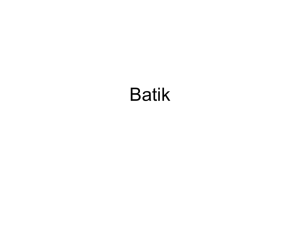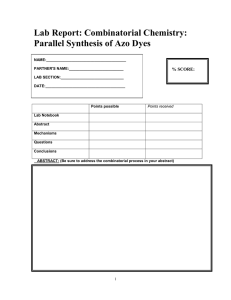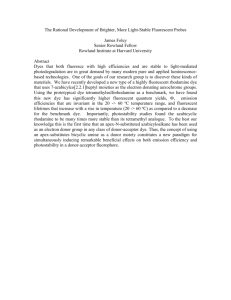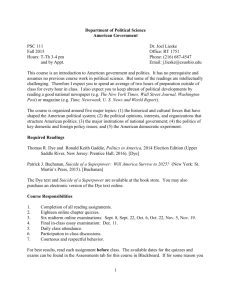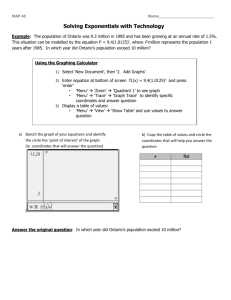PSC 111 Dr. Joel Lieske Spring 2016
advertisement
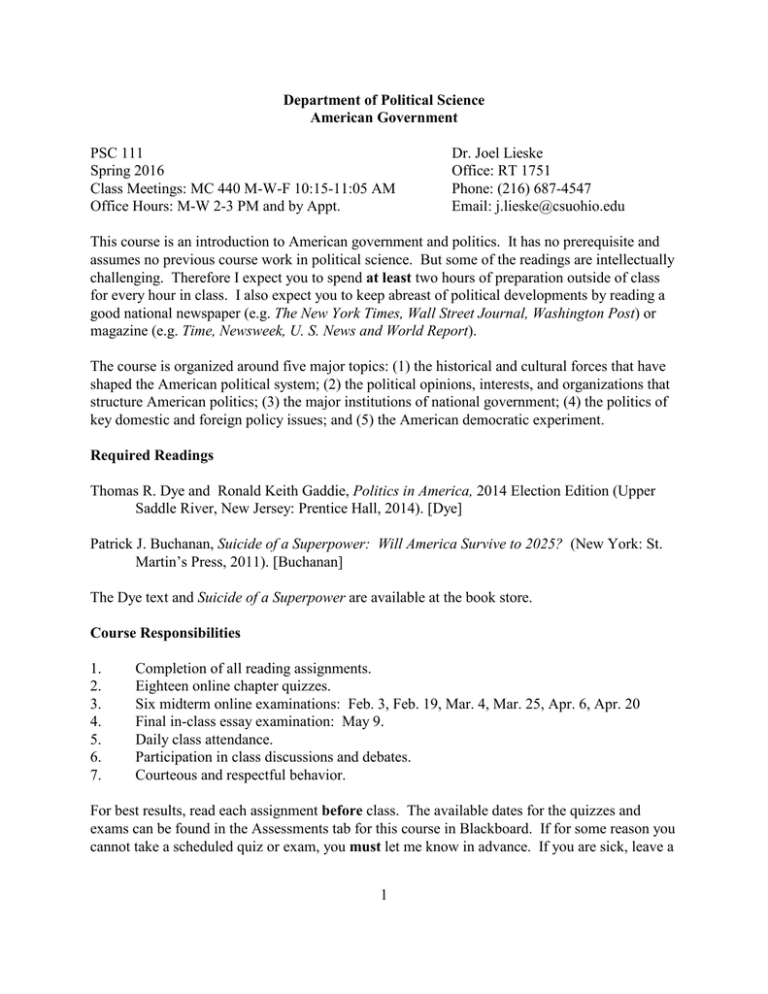
Department of Political Science American Government PSC 111 Spring 2016 Class Meetings: MC 440 M-W-F 10:15-11:05 AM Office Hours: M-W 2-3 PM and by Appt. Dr. Joel Lieske Office: RT 1751 Phone: (216) 687-4547 Email: j.lieske@csuohio.edu This course is an introduction to American government and politics. It has no prerequisite and assumes no previous course work in political science. But some of the readings are intellectually challenging. Therefore I expect you to spend at least two hours of preparation outside of class for every hour in class. I also expect you to keep abreast of political developments by reading a good national newspaper (e.g. The New York Times, Wall Street Journal, Washington Post) or magazine (e.g. Time, Newsweek, U. S. News and World Report). The course is organized around five major topics: (1) the historical and cultural forces that have shaped the American political system; (2) the political opinions, interests, and organizations that structure American politics; (3) the major institutions of national government; (4) the politics of key domestic and foreign policy issues; and (5) the American democratic experiment. Required Readings Thomas R. Dye and Ronald Keith Gaddie, Politics in America, 2014 Election Edition (Upper Saddle River, New Jersey: Prentice Hall, 2014). [Dye] Patrick J. Buchanan, Suicide of a Superpower: Will America Survive to 2025? (New York: St. Martin’s Press, 2011). [Buchanan] The Dye text and Suicide of a Superpower are available at the book store. Course Responsibilities 1. 2. 3. 4. 5. 6. 7. Completion of all reading assignments. Eighteen online chapter quizzes. Six midterm online examinations: Feb. 3, Feb. 19, Mar. 4, Mar. 25, Apr. 6, Apr. 20 Final in-class essay examination: May 9. Daily class attendance. Participation in class discussions and debates. Courteous and respectful behavior. For best results, read each assignment before class. The available dates for the quizzes and exams can be found in the Assessments tab for this course in Blackboard. If for some reason you cannot take a scheduled quiz or exam, you must let me know in advance. If you are sick, leave a 1 phone or email message no later than the day of the exam. Extensions for students who fail to notify me by the date of the scheduled exam will be given only in exceptional cases and must be justified on the basis of compelling personal circumstances or supporting documentation (e.g. a doctor’s excuse). Missed quizzes and exams will be recorded as zeroes in my grade book. Each missed exam will lower your final grade on average by a whole letter. The midterm exams will be exclusively objective in nature. Since the midterm exams are taken online, I will not take attendance when they are scheduled. The final will be an in-class essay exam. Grades Your grade in this course will be based on your scores on six midterm examinations, a final exam, 18 chapter quizzes, and class attendance. Each midterm examination will be worth 100 points. The final will count 120 points. The quizzes will each be worth 25 points. And class attendance will count a final 120 points. The quizzes will consist of multiple-choice questions. Each midterm will cover three chapters in the Dye and Gaddie text and be multiple-choice. The final examination will test you on your knowledge and understanding of the Buchanan book and be strictly essay. You do not have to agree with his views to get an A on the final. You can only take the Blackboard quizzes once and only when they are scheduled. This is also true for the Blackboard exams. For the six midterms the quiz windows will be open until the day before the exam. There is a one-day window for each exam. All of the quizzes and the midterm exams can be accessed from the Assessments tab of this course in Blackboard Learn. You can log on to Blackboard using your CSU identification number and your password. Quiz and exam results will be made available at the close of the Blackboard window. Your final grade will be determined by where your total percentile score falls on the following grade distribution: A AB+ B BC+ C CD F 84+ 80-83 75-79 70-74 65-69 60-64 55-59 50-54 40-49 <40 University grading policies require instructors to attach minuses and pluses in the A to C range. After that, only whole letter grades are recorded. 2 You can earn additional credit by participating in class discussions and any ad hoc class debates. Exceptional and sustained participation can raise your final grade by as much as a whole letter. Free Speech Policy I believe free speech is absolutely essential to the democratic process and the academic enterprise. I also believe in the Jeffersonian marketplace of ideas. Good ideas will ultimately triumph over bad ones. In addition, I believe that free minds and free ideas will help create and maintain a free society. Finally, I place a very high value on intellectual honesty. I do not conform, nor do I expect you to conform, to the so-called canons of “political correctness.” So feel free to challenge any idea, nostrum, or sacred cow that you wish, including those advanced by the good professor. But I have “zero tolerance” for students who are disrespectful of others or make unauthorized “grand exits” in the middle of class. If you need to leave for a scheduled appointment, please let me know ahead of time and sit near a door so you can leave with minimal disruption to the class. Hygienic emergencies are another matter. Other than checking for vital class related information, I will not tolerate texting and the use of cell phones during class meetings. COURSE OUTLINE Date Topic January 20 Overview of the Course I. Assigned Readings THE AMERICAN POLITICAL SYSTEM January 22 A. The Study of American Government and Democracy Dye, Ch. 1 January 25 & 27 B. American Political Culture Dye, Ch. 2 January 29 & February 1 C. The Federal Constitution Dye Ch. 3 U. S. Constitution Declaration of Independence Madison, Federalist Nos. 10 & 51 February 3 First Examination February 5 & 8 D. American Federalism 3 Dye, Ch. 4 II. POLITICAL PROCESSES February 10 & 12 A. Public Opinion and Political Participation February 15 President’s Day: No Class February 17 B. The Media February 19 Second Examination February 22 & 24 C. Political Parties Dye, Ch. 7 February 26 & 29 D. Campaigns and Elections Dye, Ch. 8 March 2 E. Interest Groups Dye, Ch. 9 March 4 Third Examination III. Dye, Ch. 5 Dye, Ch. 6 INSTITUTIONS OF GOVERNMENT March 7 & 9 A. The Congress Dye, Ch. 10 March 11 & 21 B. The Presidency Dye, Ch. 11 March 13-20 Spring Break March 23 C. The Bureaucracy March 25 Fourth Examination March 28 D. The Judiciary IV. Dye, Ch. 12 Dye, Ch. 13 THE POLITICS OF PUBLIC POLICY March 30 & April 1 A. Civil Liberties Dye, Ch. 14 April 4 B. Civil Rights Dye, Ch. 15 April 6 Fifth Examination April 8 C. The Economy Dye, Ch. 16 4 April 11 & 13 D. Social Welfare Dye, Ch. 17 April 15 & 18 E. Defense Policy Dye, Ch. 18 April 20 Sixth Examination V. THE DEMOCRATIC EXPERIMENT AND THE AMERICAN FUTURE April 22 A. The Passing of a Superpower Buchanan, Preface, Intro. & Ch. 1 April 25 B. The Death of Christian America and the Crisis of Catholicism Buchanan, Chs. 2-3 April 27 C. The End of White America and Demographic Winter Buchanan, Chs. 4-5 April 29 D. Equality or Freedom? and the Diversity Cult Buchanan, Chs. 6-7 May 2 E. The Triumph of Tribalism and “The White Party” Buchanan, Chs. 8-9 May 4 F. The Long Retreat and the Last Chance Buchanan, Chs. 10-11 May 6 The American Democratic Experiment May 9 Final Examination 10:15 a.m.-12:15 p.m. University Commitment to Students with Disabilities Educational access is the provision of classroom accommodations, auxiliary aids and services to ensure equal educational opportunities for all students regardless of their disability. Any student who feels he or she may need an accommodation based on the impact of a disability should contact the Office of Disability Services at (216) 687-2015. The Office is located in MC 147. 5
